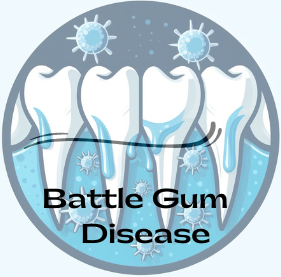
Gum disease and heart disease are two health concerns that pop up frequently in doctors’s offices and online searches. People often wonder if there’s a real connection or if these are just two separate issues you shouldn’t worry about at the same time. Looking at what’s out there, I’ve found that understanding the possible link between gum health and your heart can actually be really helpful. You might be surprised at how much your gums and heart can affect one another. Let’s dig into what scientists know so far, plus a few things I’ve picked up along the way.
What Is Gum Disease, and Why Does It Matter?
Gum disease, or periodontal disease, is an infection of the tissues that hold your teeth in place. It usually starts out as gingivitis, which shows up as red, swollen gums that might bleed when you brush your teeth. If you don’t get it treated, it can become periodontitis, a more serious version where the gums pull away from the teeth and even damage the bone underneath. Losing teeth isn’t the only worry. The bacteria that cause gum disease will travel.
Understanding gum disease is helpful because it’s largely preventable. Brushing, flossing, and regular dentist visits can cut your risk by a lot. But if it’s left to progress, the constant inflammation and infection can have effects that reach beyond your mouth, sometimes impacting your overall health in surprising ways.
Is There a Link Between Gum Disease and Heart Disease?
This is a question that comes up a lot, and the answer is more complicated than just yes or no. Studies show that people with gum disease are more likely to have heart problems, including heart attacks and strokes. For instance, the American Heart Association points out that gum disease and heart disease share some risk factors, such as smoking, older age, diabetes, and poor nutrition.
Researchers think that the link might be due to inflammation. If your gums are infected, your body kicks off an immune response that can make inflammation spread throughout your entire body. Inflammation is one of the things that makes cholesterol stick to the arteries in your heart, leading to clogs and heart trouble down the line. Bacteria from your mouth can also get into your bloodstream during brushing or dental work, finding their way to your heart and sticking to the blood vessel walls.
While doctors still debate how direct this relationship is, most agree that looking after your gums is a pretty smart move if you care about your heart. The Centers for Disease Control and Prevention (CDC) and other groups recommend treating gum disease early, not just for your teeth, but for your overall health. In my opinion, maintaining gum health is like an easy first step toward a healthier body.
Can a Gum Infection Go to Your Heart?
It might sound a little dramatic, but in some cases gum infections can play a role in heart infections. The main worry is a condition called infective endocarditis. This happens when bacteria from your mouth (or elsewhere in your body) travel through your blood and stick to the inner lining of your heart or to a heart valve.
This is pretty rare for healthy people. However, for anyone with a damaged heart valve, a heart defect, or a history of heart surgery, gum infections can become more dangerous. That’s why dentists ask about heart problems before doing certain treatments. They want to avoid sending bacteria into your blood if your heart is already vulnerable. Sometimes, doctors even recommend taking antibiotics before dental work for people with specific heart conditions.
Even if you don’t fit into a high-risk group, keeping your mouth clean lowers the number of bacteria that could, in theory, travel to your heart through your bloodstream. From what I’ve seen, people who get regular dental care spend far less time worrying about these complications.
How Gum Disease Might Affect Heart Health
Scientists have been studying the link between gum disease and heart health for quite a while, and a few main ideas come up over and over. Here’s what I’ve learned from both reading and talking to dental professionals:
- Bacteria Spread: The same types of bacteria that affect your gums can sometimes travel to other parts of your body, especially through tiny injuries in your gums.
- Inflammation: Gum disease triggers inflammation that doesn’t always stay local. This can increase your risk of clogged arteries, as inflammation plays a key role in heart disease.
- Blood Clots: Some research suggests bacteria from gum disease can make your blood more likely to clot, and clots can block blood flow to your heart or brain.
Although there isn’t total agreement in the scientific world on every detail, the patterns are definitely worth noting if you want to keep your heart in top shape. Preventing gum disease isn’t just about a nice smile; it might actually help protect your heartbeat, too.
What Are the Signs to Watch Out For?
Catching gum disease early is pretty important, even if you aren’t concerned about your heart at the moment. Here’s what to keep an eye out for with your gums:
- Red, swollen, or tender gums
- Gums that bleed easily, especially when brushing or flossing
- Persistent bad breath
- Receding gums or teeth that feel loose
If you spot any signs like these, booking an appointment with your dentist is a smart step. If you have heart disease or other risk factors, make sure to mention it to your dental care provider. They can tailor your care to help keep both your gums and your heart safe.
Treating and Preventing Gum and Heart Issues
Looking after your teeth is one thing you can actually control when it comes to your health, and it pays off for your heart as well. I’ve picked up some practical steps dentists and doctors typically suggest:
- Brush and Floss Daily: Cleaning your teeth removes plaque and food particles, stopping gum disease before it gets serious.
- See Your Dentist Regularly: Getting professional cleanings helps catch problems in their early stages.
- Don’t Skip the Dentist if You Have Heart Disease: Let your dental care provider know about your heart history so they can plan safer treatments during cleanings and other work.
- Eat Well and Don’t Smoke: Good nutrition and saying goodbye to tobacco make a huge difference for both gum and heart health.
- Manage Health Conditions: Keeping diabetes, blood pressure, and cholesterol in check lowers your risk of trouble with your gums and your heart.
Taking these steps helps drop your risk of gum infections and the chance of bacteria entering your bloodstream. You’ll also get the side benefit of fresher breath and stronger teeth, which is always a win.
Common Concerns and Questions
I get a lot of the same questions from readers, so here are some straightforward answers I think might be helpful:
Question: Does treating gum disease lower my risk of heart issues?
Answer: There isn’t final proof yet that treating gum disease directly prevents heart attacks, but many studies show people who take care of their teeth also tend to have healthier hearts. Sticking with regular dental care definitely helps.
Question: What should I tell my dentist if I have a heart condition?
Answer: Always let your dentist know if you have a heart problem, a history of heart surgery, or take heart medications. This helps them make your treatments safer, and sometimes it means taking antibiotics or choosing gentler procedures.
Question: Can I get heart problems just from having bad gums?
Answer: Having gum disease doesn’t guarantee you’ll get heart disease, but it’s wise to look after your gums as part of overall good health. Many doctors say solid gum care is just another way to show your heart some love.
Takeaway for Healthier Gums and a Happier Heart
Paying attention to your gums does a lot more than keep your teeth in place. It could make a real difference for your heart as well. While there’s still much to learn about exactly how gum disease and heart disease relate, the current evidence suggests brushing, flossing, and booking regular checkups are smart habits. If you’re ever unsure about symptoms or your personal risk, touching base with your dentist or doctor is always a solid plan. Your mouth and your heart just might thank you for your support.
